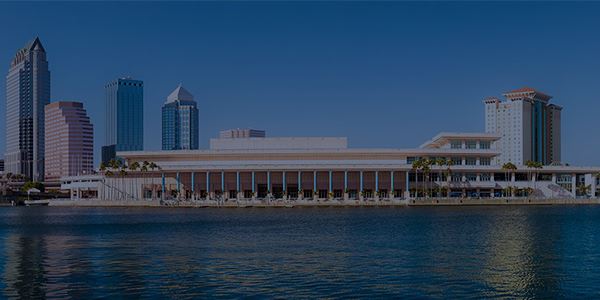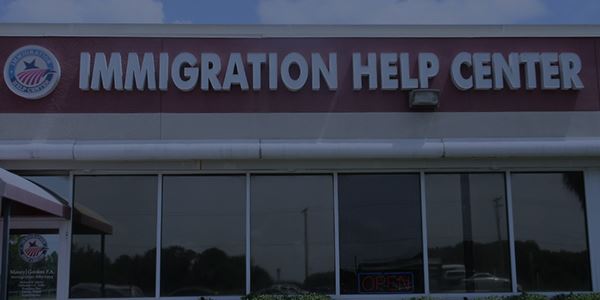
Tampa Family Immigration Lawyer
Helping Families Stay Together in Tampa, FL
At Maney | Gordon | Zeller, P.A., we understand how important it is for you to keep your family together. Our team of Tampa family immigration attorneys is here to help you navigate the immigration process, making it as smooth and stress-free as possible. We have more than 100 years of combined experience and have handled tens of thousands of cases. We have the in-depth legal knowledge and resources to help you achieve your goals.
Call (800) 708-4399 or online to schedule a consultation with our Tampa family immigration attorneys.
How Can I Bring My Family to the United States?
Family immigration in the United States refers to the process by which U.S. citizens and lawful permanent residents (green card holders) can sponsor certain family members to come and live permanently in the United States. This sponsorship is primarily done through family-based immigration visas, which allow family members to reunite with their relatives who are already living in the United States.
Here are some common types of family immigration visas:
Immediate Relative Immigrant Visas:
- IR-1 Visa: For spouses of U.S. citizens.
- IR-2 Visa: For unmarried children under 21 years of age of U.S. citizens.
- IR-3 Visa: For orphans adopted abroad by U.S. citizens.
- IR-4 Visa: For orphans to be adopted in the United States by U.S. citizens.
Family Preference Immigrant Visas:
- F1 Visa: For unmarried adult children (21 years or older) of U.S. citizens.
- F2A Visa: For spouses and unmarried children (under 21 years) of green card holders.
- F2B Visa: For unmarried adult children (21 years or older) of green card holders.
- F3 Visa: For married children of U.S. citizens and their spouses and children.
- F4 Visa: For siblings of adult U.S. citizens and their spouses and children.
Each type of visa has specific eligibility criteria and processing procedures. The U.S. Citizenship and Immigration Services (USCIS) oversees the application process for family immigration visas, which typically involves the U.S. citizen or green card holder filing a petition on behalf of their qualifying family member.
Common Mistakes You Can Make On Your Application
Filling out family immigration visas can be a complex process, and making mistakes can lead to delays, rejections, or even denials of the visa application. Here are some common mistakes to avoid when filling out family immigration visas:
- Incomplete or Incorrect Forms: Failure to fill out all required fields on the forms accurately can lead to delays or rejection of the application. It's crucial to carefully read and follow the instructions provided by the U.S. Citizenship and Immigration Services (USCIS).
- Missing Supporting Documents: Each visa category requires specific supporting documents, such as birth certificates, marriage certificates, divorce decrees (if applicable), and proof of relationship. Failure to include these documents or providing incomplete versions can lead to delays or denial.
- Not Meeting Eligibility Requirements: Each visa category has specific eligibility criteria based on the relationship between the petitioner (U.S. citizen or green card holder) and the beneficiary (family member seeking the visa). Not meeting these criteria can result in a denial of the visa application.
- Incorrect Fee Payments: Paying incorrect fees or not including the required payment receipt can delay the processing of the application. It's important to check the USCIS website for the most current fee schedule and payment instructions.
- Inconsistent Information: Providing inconsistent information across different forms or during interviews can raise red flags with USCIS officers. It's important to ensure that all information provided is accurate and consistent throughout the application process.
- Missing Deadlines: Missing deadlines for submitting required documents, responding to requests for evidence (RFEs), or attending interviews can result in delays or even the denial of the visa application. It's essential to stay organized and aware of all deadlines provided by USCIS.
- Not Seeking Legal Advice When Needed: Family immigration law can be complex, especially in cases involving unusual circumstances or prior immigration issues. Consulting with an immigration attorney can help ensure that the application process is handled correctly and efficiently.
- Neglecting to Maintain Communication: It's important to keep USCIS updated with any changes in contact information or circumstances related to the application. Failure to respond to USCIS communications can lead to delays or the denial of the application.
By being aware of these common mistakes and taking steps to avoid them, applicants can improve their chances of successfully navigating the family immigration visa process.
How Can a Tampa Family Immigration Attorney Help?
Applying for a family visa or green card can be a complex and time-consuming process. Our Tampa family immigration lawyers are here to handle the legal aspects of your case so you can focus on your family.
Our team can help you with all aspects of family immigration, including:
- Helping you determine the best way to bring your family to the United States
- Assisting you with the petitioning process
- Preparing and filing all necessary paperwork
- Representing you at all interviews and hearings
- Ensuring you are informed and updated on the progress of your case
Our Tampa family immigration attorneys understand how important it is for you to keep your family together. We will provide the compassionate and personalized legal guidance you need and the aggressive advocacy you deserve. We can help you navigate the family immigration process from start to finish.
Contact us today at (800) 708-4399 to speak with our Tampa family immigration lawyers.

Why Choose Maney | Gordon | Zeller?
-
We Have Nine Offices Across the U.S. Dedicated to Your American Dream
-
We Are Licensed to Practice Law at the United States Supreme Court Level
-
We Are Licensed to Practice Law in Sixteen States & Four Countries
-
We Have Board-Certified* Immigration Specialists on Our Legal Team
-
We Have Served Hopeful Immigrants for Over 40 Consecutive Years
-
We Are Nationwide Authorities on the Law & Politics of Immigration

A member of our team will be in touch shortly to confirm your contact details or address questions you may have.





